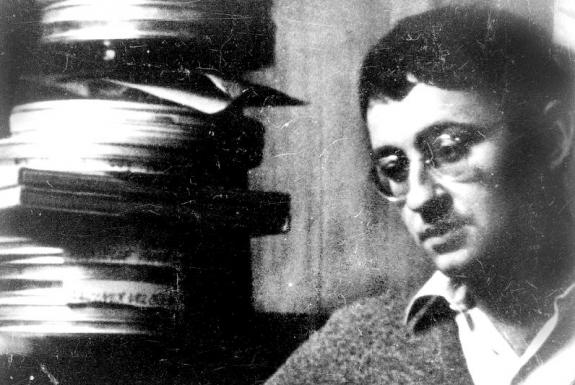Guy Debord es declarado ‘tesoro nacional’ por el Gobierno francés… ja… la info llega vía este artículo en el británico The Guardian:
The resurrection of Guy Debord
The situationist arch-rebel has finally been recognised as a ‘national treasure’ in France – but would he have appreciated it?Guy-Ernest Debord would be spinning in his grave – had he not been cremated following his suicide in 1994. The arch-rebel who prided himself on fully deserving society’s «universal hatred» has now officially been recognised as a «national treasure» in his homeland.
The French government has duly stepped in to prevent Yale University from acquiring his personal archives, which contain almost everything he ever produced from the 1950s onwards: films, notes, drafts, unpublished works and corrected proofs, as well as his entire library, typewriter and spectacles. The crowning jewel is, of course, the manuscript of The Society of the Spectacle, Debord’s devastating pre-emptive strike on virtual reality. The small wooden table on which his magnum opus was composed is also thrown in.
It’s difficult to convey how bizarre it is to hear Christine Albanel – Sarkozy’s minister of culture – describing the revolutionary Debord as «one of the last great French intellectuals» of the second half of the 20th century. A love-in between a resurrected Andreas Baader and Angela Merkel would be only marginally more surprising. Then again, intellectuals have been something of a Gallic speciality ever since the Dreyfus Affair. They’re accorded the privileged status usually reserved for the likes of Bono on these shores. Jean-Paul Sartre’s funeral, in 1980, attracted some 50,000 punters. I doubt whether Noam Chomsky or Tom Paulin will top that.
But however incongruous her position, Madame Albanel is spot-on: no one – not even his sworn ideological enemies – can deny Debord’s importance. Even though the young prankster soon turned into a curmudgeonly old soak, his influence is all-pervasive. In fact, it was precisely because he hated the modern world with a passion that he was able to analyse it so presciently. «All that was once directly lived has become mere representation,» he observes in the opening pages of The Society of the Spectacle – a statement that’s only grown in truth since he made it, back in 1967.
Howls for Sade, his first movie, certainly was not «mere representation». It was the cinematographic equivalent of a meeting between Yves Klein’s monochromes and John Cage’s 4′ 33″: the screen remains blank throughout – all-white when there is some dialogue and all-black the rest of the time. During the last 20 minutes, the film plays itself out in total silence and obscurity.





Pues hace unas semanas ya le dieron la medalla de la Legión de Honor a Cronenberg. Ahora creo que el plan del gobierno francés es instaurar los días de Isidore Isou e Isidore Ducasse y hacer que Histoire d’O, Le Jardin des supplices y Les 120 journées de Sodome sean lecturas obligatorias en el instituto. Seguro que así el mundo sería un lugar mejor…